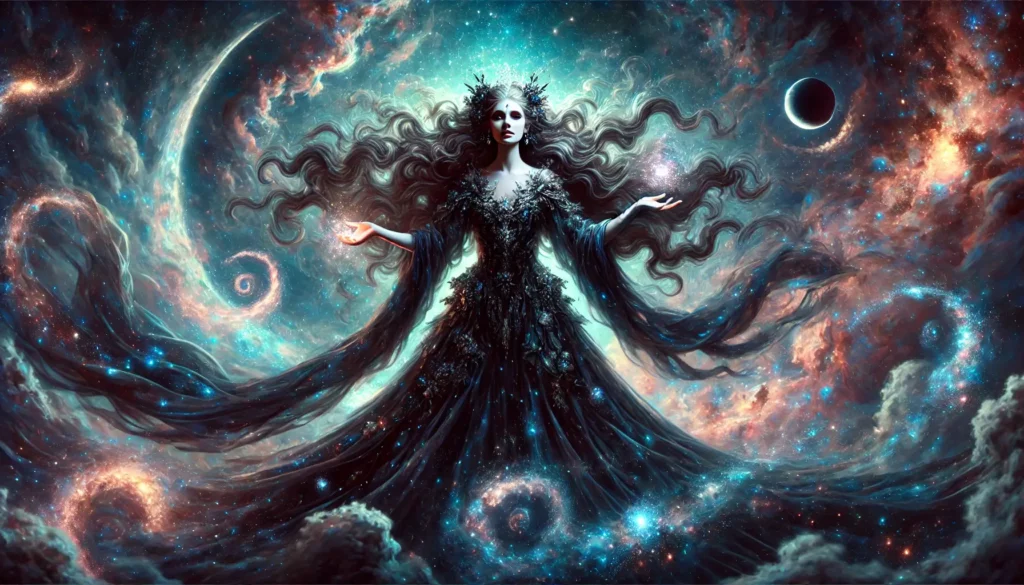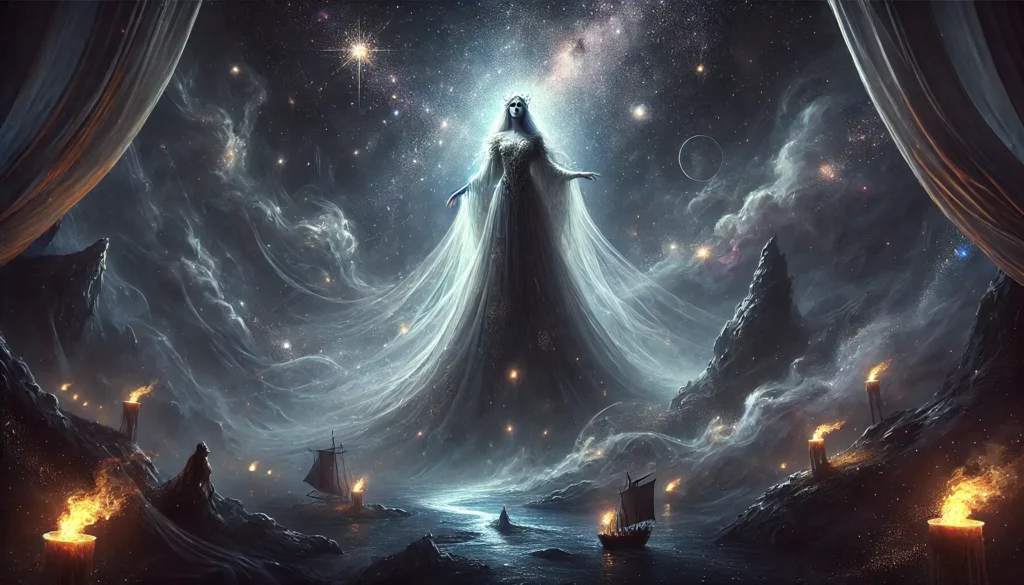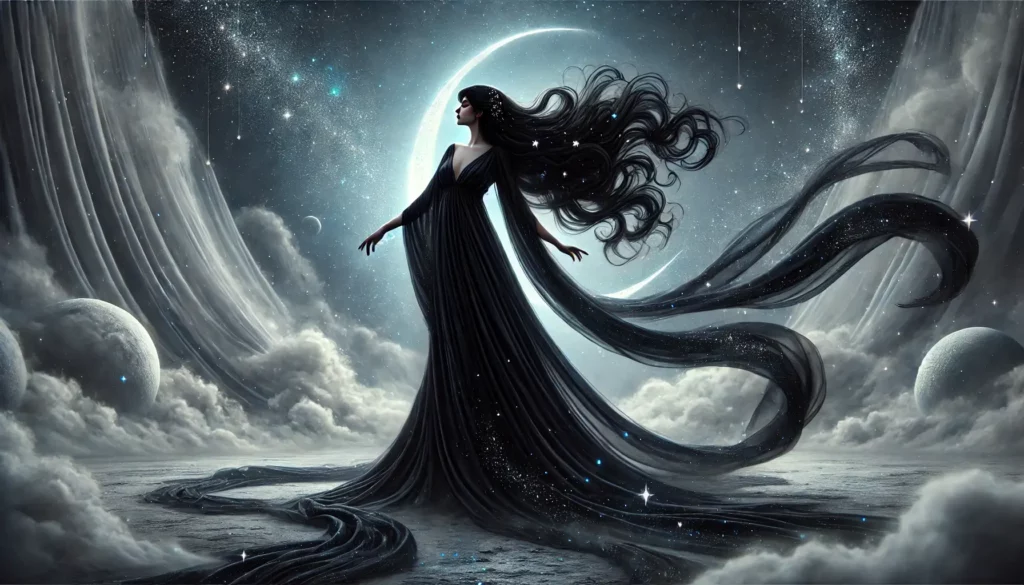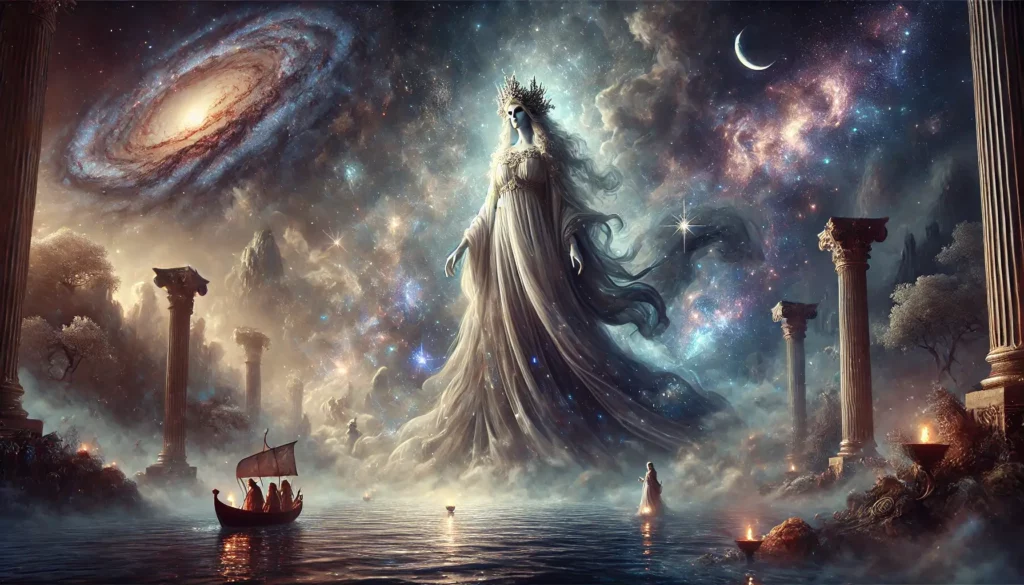Have you heard of Nyx, the Greek Goddess of Night? Explore her fascinating myths, powerful legacy, and why she still captivates us today.

When the stars twinkle in the ink-black sky and the world falls silent, it’s easy to feel the enigmatic allure of the night. But for ancient Greeks, the night wasn’t just a time—it was a being, a divine, primordial goddess called Nyx. Known as the Greek Goddess of Night, Nyx’s story is both awe-inspiring and shadowy, much like the realm she governs.
If you’re a mythology enthusiast, history buff, or academic researcher curious about one of the most mysterious figures in Greek mythology, buckle up. We’re about to explore the origins of Nyx, her remarkable powers, and her role in shaping myths that have transcended centuries.
Nyx in Greek Mythology: A Primordial Force
Before there were Olympian gods like Zeus, Athena, or Poseidon, the Greeks believed in primordial deities—powerful entities that embodied the raw elements of the universe. Nyx, the goddess of night, was one such figure. She wasn’t born of Zeus or any other recognizable parent. Instead, she was a part of the first generation of gods who existed even before the Earth was fully formed.
According to Theogony, a work by the ancient Greek poet Hesiod, Nyx was among the children of Chaos. Chaos, in Greek mythology, isn’t what we think of as modern chaos—it refers to the great void, the nothingness from which everything began. Nyx shared this primordial pedigree with other deities such as Gaia (Earth) and Tartarus (the Abyss).

Nyx is often depicted as a shadowy figure draped in a dark veil, her presence representing the subtle yet all-encompassing power of night.
Who Were Nyx’s Children? A Web of Divinity
One of the most fascinating aspects of Nyx is her genealogy. Despite being a goddess of the night—often associated with darkness and mystery—her children play key roles in the order of the cosmos.
Here are some of the most significant offspring of Nyx:
- Hypnos (Sleep) and Thanatos (Death): These twin deities embody the duality of rest and the eventuality of life. Hypnos brings calm and rejuvenation, while Thanatos symbolizes the inevitable silence that follows life.
- Eris (Strife) and Nemesis (Retribution): Eris represents discord and chaos, often blamed for conflict and war. Nemesis, on the other hand, is the goddess of revenge, ensuring that justice is served.
- Moirai (The Fates): Many myths say that Nyx gave birth to the Fates—three sisters who controlled the destiny of mortals and gods alike.
- Hemera (Day) and Aether (Light): It’s interesting to note that Nyx, the goddess of night, also birthed Hemera and Aether, who symbolize day and bright light respectively.
The breadth of Nyx’s children reflects her influence across both the darker and more balanced aspects of existence. She’s not merely a goddess of night but a foundational figure present in all facets of life.

Nyx’s Role in Greek Mythology
Nyx’s role in Greek mythology extends beyond her genealogy. While she wasn’t as prominently featured in stories as Olympian gods, her presence was deeply respected. Even Zeus, the mighty king of the gods, was said to fear Nyx.
One particular myth underscores this fear. Hera, Zeus’ wife, once enlisted the help of Hypnos (Nyx’s son) to lull Zeus into a deep sleep so she could punish Heracles. When Zeus awoke and discovered Hypnos’ role, he was furious and sought to punish him. However, Hypnos fled to Nyx for protection. Much to everyone’s astonishment, Zeus backed off, unwilling to provoke Nyx’s wrath. This instance paints a vivid picture of her immense power and authority.
Nyx also played a key role in terms of symbolism. She represented not only the literal night but also the metaphorical darkness within one’s soul—secrets, uncertainties, and the unknown.
Depictions of Nyx in Art and Literature
Art and literature have long been mediums through which humans immortalize their gods, and Nyx is no exception. Although her mythological presence is understated compared to someone like Athena or Aphrodite, she has inspired captivating representations over the years.
- Greek Vase Paintings: On ancient pottery, Nyx is often painted as a majestic woman veiled in dark robes, riding a chariot pulled by horses. These portrayals emphasize her grace and mystery.
- Literary Mentions: Aside from Hesiod’s Theogony, Nyx appears in various other texts, though often indirectly. Her presence is alluded to in works that explore darker themes, such as Homer’s Iliad, where Hypnos (her son) plays a part.
- Modern Resonance: Today, Nyx has found her way into pop culture and even branding (shoutout to the makeup brand NYX!). Her legacy endures, tapping into our continued fascination with the night and all it represents.
Why Nyx’s Story Still Captivates Us

Nyx’s story speaks to something primal within all of us. Night has always been a source of wonder. It’s when the noise dies down, the stars emerge, and a cloak of stillness wraps itself around the world. But with that peace also comes vulnerability. What lurks in the dark? What truths are hidden in shadow? Nyx, as the embodiment of night, gives us a means to both personify and process these feelings.
Her influence also extends to modern philosophical thinking. Her children remind us that from darkness can emerge light, rest, justice, and even chaos. Life, after all, isn’t black and white—it’s a constellation of contrasts.
What Can We Learn from Nyx?
If Nyx represents anything, it’s balance. She holds both the beautiful and frightening aspects of night within her and reminds us that even things we fear can have a purpose.
For mythology enthusiasts, Nyx is a treasure trove of mystery, standing apart from the more well-known Olympians. She reminds us that behind every bright day is the ebbing tide of night, powerful and poised.
Whether you’re a casual admirer of Greek mythology or deeply entrenched in academic research about the cosmos of ancient Greece, Nyx offers endless depth to explore.

Jessi is the creative mind behind The Coffee Mom, a popular blog that combines parenting advice, travel tips, and a love for all things Disney. As a trusted Disney influencer and passionate storyteller, Jessi’s authentic insights and relatable content resonate with readers worldwide.
